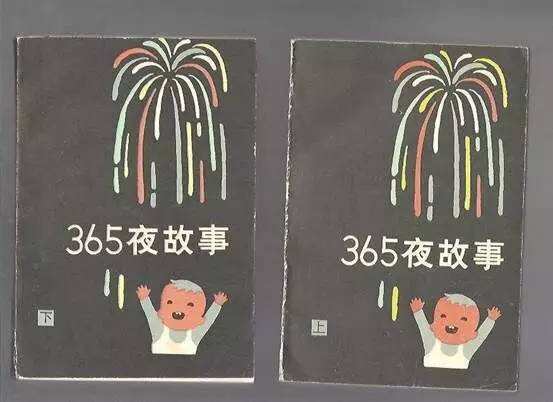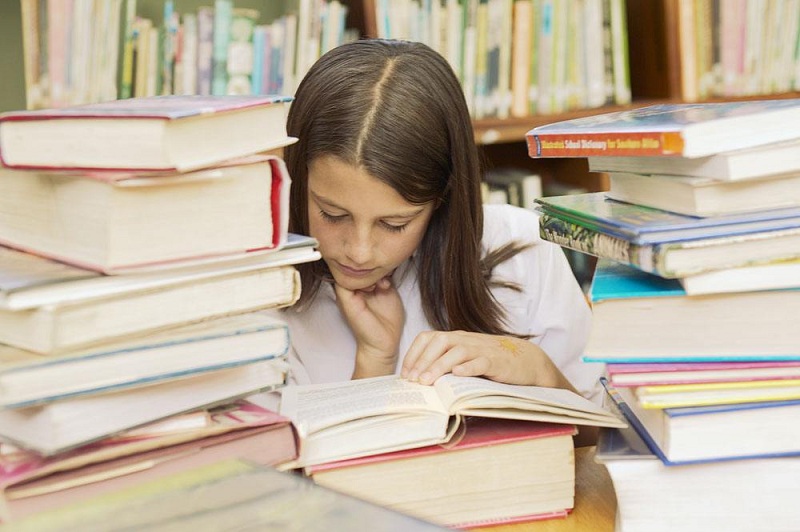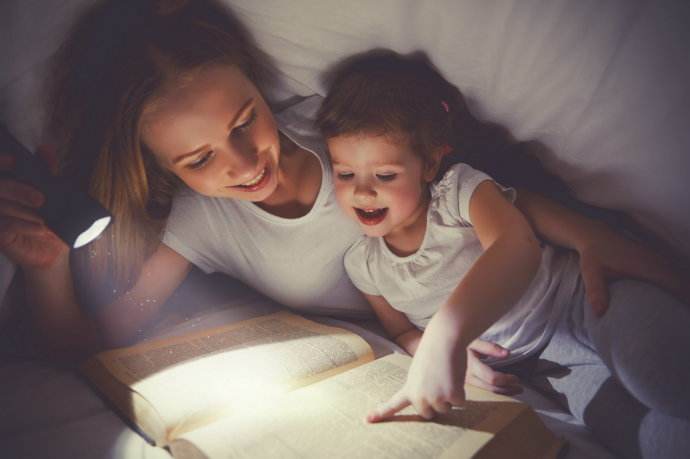I was attracted to the world of books at a very young age. My mother, who’s a teacher, passed on the love of literature by reading stories to me every night. Until this day, I can still remember many of the stories that I read from my first ever book – Stories of 365 Nights.
Consisting of two volumes, the book is a comprehensive mix of Chinese and foreign folklores, fables, mythology and fairy tales. As a child, I could spend all day flipping through the book, reading one after another mesmerizing story, and not be intimidated by a book equivalent in size to War and Peace. If I came across a slightly more difficult read, I would simply skip onto others until I was advanced enough to read the whole book, and I read it again and again.
In my memory, the cover of this book was a hand-drawn pastel illustration on a blackwash background – quite simple in comparison to other children’s books with their colorful and embellished hardback options. The illustrations on the pages were monochromatic sketches that were again, not the most appealing choices to kids.

Stories of 365 Nights
Whether it was a witty Chinese legend about a kid named Cao Cong coming up with a method to weigh an elephant; a fable portraying a race between a hare and a tortoise; the story of the Little Red Riding Hood, where a young girl rescues her grandmother from a hungry and sneaky wolf; or an ancient Chinese folklore showing the dedication of a mythical bird-like figure determined to fill up the sea with gravels and stones, Stories of 365 Nights could always find the most appropriate and intriguing narrative to tell different stories about the world in a way that kids can easily comprehend.
And of course, after I’d worn the pages out and could remember every story from the book by heart, I was on the hunt of another great adventure. However, after many attempts, neither my mother nor I were able to find a quality replacement that was suitable for my age.

When a child starts to itch to read, it’s a golden time for them to begin a journey and pursue a lifetime reading habit. With no desirable alternatives on the market to quench my increasing thirst for reading, I moved on to books that were far more advanced for my age. Today, I continue to read regularly, and am still as fascinated by literature as I was back in my childhood. From studying Literature at school, to choosing a writing-related career, I sometimes think if it wasn’t this bulky 365-story collection, I might not have been attracted to the world of literature in the first place.
I have to wonder, why was this unnoticeable book so special that it could captivate my five-year-old self and continues to have an impact on me today? Here, I speak to English literature and education expert, Dr. Phillip Stevenson, Assistant Professor at Sino-US College, Beijing Institute of Technology in Zhuhai, to find the answer.
How important is early self-reading for children?
I think early reading is incredibly beneficial for many, many reasons, and can bring lifelong benefits. From a purely linguistic viewpoint young readers develop a richer vocabulary, better writing and spelling, and more articulate oral communication. But there's more than that: The more a child reads, the more they are exposed to knowledge and ideas. Reading stimulates children's curiosity about people, places and matters, and it satisfies their curiosity by providing explanations of how things work, and examples of how people think, feel and act. If a parent or care-giver can make reading a joyful experience for a child, they are doing that child a great service.
Compared to bedtime stories told by parents, what is the main difference from children’s early self-reading?
I think both are important, and both fulfill different needs. Being read a story is very much a shared activity, whereas reading by oneself is a solo experience. The act of listening to a story speaks to something quite ancient in us. The oral tale preceded the written, and there's something timeless about listening to a good storyteller, taking in the nuances of their delivery, enjoying the sounds of the spoken word. A bedtime story is also something of a ritual; I remember really looking forward to my mom or dad reading to me at bedtime, and feeling cheated if I didn't get a story before going to sleep!
In comparison, reading by oneself is a different experience. Self-reading allows one to be independent, and also puts the onus on the reader to comprehend what they are reading. You mentioned how as a child you would skip the more difficult stories and then come back to them later. Reading by oneself is more challenging for a child than listening and following the words, but in doing so, the child works out strategies for understanding. This brings me back to what I said earlier about lifelong benefits: having to work out by oneself, 'What does this mean?' is a fundamental life skill.
We know that the editing that goes into a book is vital as it decides how you tell a story. What should parents look for when they are either choosing or acting as a doorkeeper for their children’s reading selection?
Well, not all children are the same, and choosing a book for a child is something of a matchmaking process. The first question we should ask is, 'Will my child be able to read this?' In some cases it could be as simple as looking at the 'recommended reading level' on the back of a book. Other children might read at a level above or below that recommended level, so something a parent could do is open the book at random and ask the child to read a page. This should give a good indication as to whether the book is challenging or not. I would also say that parents shouldn't be afraid to choose a book that may be suggested for someone older than their child. If a book is beyond a child's current reading ability it can be read to the child by the parent, then later on read by themselves.
In terms of content, consider the child's interests and personality. Will your child enjoy reading the book? Librarians and teachers can also be a great help when choosing books for your child. Ask them for recommendations!
In Stories of 365 Nights, the collection thoughtfully balances the cultural influences of the East and West. Is this an important factor to consider when choosing books for children living in a city like Shanghai?
This is a question that is close to my heart because I grew up in a tiny village in Northern Ireland, and my local library was my window to the world. The world of books allowed me to figuratively travel to places and times very different from my rural surroundings, and to imagine lives very different from my own. Certainly, a thoughtful balance of cultural influences can help understanding and inclusivity, but I think this is a much more nuanced question than some dichotomy of 'East' and 'West.' What about African cultures, for example? The lived experiences of people of different genders and social classes is also something to take into consideration.


















